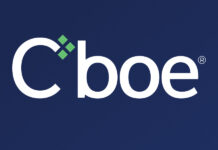Dark pool trading in credit markets offers numerous benefits on a day-to-day basis, and can increase during periods of market stress. A recent example of heightened market activity was when Credit Suisse’s Additional Tier 1 (AT1) bonds were written down following the bank’s acquisition by UBS.

Nichola Hunter, global head of fixed income sales and trading at Liquidnet, said trading in the dark comes into its own especially during times of market stress because the nature of a dark pool is that it provides anonymity and prevents information leakage. She added: “The more stressed the market, the less information anyone wants to give away.”
In March this year, after Swiss regulators engineered the takeover of Credit Suisse, the bank’s AT1 bondholders were unexpectedly wiped out ahead of shareholders receiving $3.25bn in UBS shares. This decision meant that we saw a number of asset managers wanting to sell AT1’s, and Liquidnet noted a significant uptick in demand for their protocol, with an influx of firms into its dark pool to trade a myriad of AT1 bonds.
“The dark pool gave an opening to distressed sellers, hedge fund customers, and other market makers who saw an opportunity to pick up that subordinated debt,” Hunter added. “It is a really good illustration of when the dark is suitable for certain trading conditions.”
Market conditions, including the rise in interest rates and geopolitical events, have led to a 40% increase in volume year-on-year in Liquidnet’s fixed income dark pool which covers investment grade, high yield and emerging market credit across EMEA, North America and Latin America.
Certain parts of the credit market are highly illiquid so the buy side are often challenged to find matches and a certain degree of price discovery. For these types of hard-to-trade bonds, participants in Liquidnet can upload their interest privately, the protocol will then seek a match and then participants negotiate on price anonymously and, if needed, can do so with the assistance of Liquidnet’s high touch trade cover team. Once a deal has been finalised, each counterparty trades electronically with Liquidnet and settles automatically via straight-through-processing.
“Trading is typically in larger notionals, high-touch in the dark,” said Hunter. “The average trade size using RFQs (request-for quotes) is less than $1m, while the average trade size in Liquidnet’s fixed income dark pool is greater than $1mm.
Liquidnet launched the first dark pool for corporate bonds in 2015 to facilitate direct, peer-to-peer trading of corporate bonds among asset managers. The global institutional trading network used the blotter-scraping technology from its already established equities dark pool, which sweeps its buy-side clients’ order management systems for indications in order to find natural matches.
In 2021 Liquidnet was acquired by TP ICAP and they have continued to explore opportunities whereby additional liquidity in the fixed income dark pool can be augmented by opportunities from the dealer community. Participants have the flexibility to tailor the type of liquidity they wish to interact with, although matches will still be anonymous. Liquidnet will flag whether the match is with a dealer or a buy-side firm but will not give up the name of the firm.
“In order to scale up, we need to augment the dark pool with liquidity from the whole market,” Hunter said “We are focusing heavily on adding Tier 1 dealer liquidity into the dark pool to maximise matching opportunities and grow our dealer-to-client business.”
TP ICAP is currently incorporating the Liquidnet front end into its Fusion platform to allow integrated distribution to dealers. New protocols based on trade urgency and features will also be added to the dark pool, such as to allow dealers to target block axes at certain clients.
If a dealer has an axe in a particular bond, they will be able to target participants that have shown interest in that particular security over a certain period of time. This will create more opportunities for matches in hard-to-trade illiquid bonds, while minimising information leakage according to Hunter.
“The principals of our matching protocol remain the same and we are just augmenting liquidity as participants only ever release information if they match,” she added.
Hunter added: “We have some fairly ambitious volume and sales targets for this year.”

©Markets Media Europe 2025









